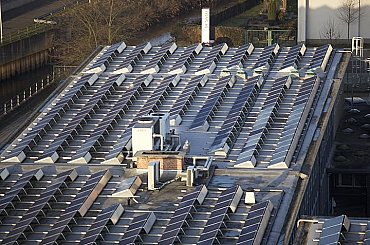New research sheds light on impact of sodium-induced degradation in heterojunction solar cells
University of New South Wales researchers investigated the impact of sodium-induced degradation in heterojunction solar cells under accelerated damp-heat testing. They considered three different types of sodium salts and identified the degradation mechanisms attributed to each contaminant.

You are not logged in
If you want to read more, join the ENERGY-HUB club
LoginTry the monthly membership in the ENERGY-HUB club for free!
Related articles
Heterojunction solar cell based on indium tin oxide buffer layer achieves 25.36% efficiency
Researchers in China have sought to increase the efficiency of heterojunction solar cell through a buffer layer made of indium tin…
EVident Battery Secures $3,2 million to Revolutionize EV Battery Pack Inspection Technology for a Greener Future and Launches Pilot Product
EVident Battery Secures $3,2 million to Revolutionize EV Battery Pack Inspection Technology for a Greener Future and Launches Pilo…
Getting More Out of the Battery with Simulations: Fraunhofer ITWM Presents Innovations for Electromobility
Getting More Out of the Battery with Simulations: Fraunhofer ITWM Presents Innovations for Electromobility
ESS Recognized as TIME Top GreenTech Company and one of Fortune’s Most Innovative Companies in America for 2025
ESS Recognized as TIME Top GreenTech Company and one of Fortune’s Most Innovative Companies in America for 2025
New £1.5M UK-Taiwan Initiative Targets Next-Gen Hydrogen Production with Bramble Energy’s Breakthrough Electrolyser Technology
London, UK.-- UK cleantech specialist Bramble Energy, in partnership with Taiwan-based Tripod Technology Corporation and Tripod N…
ENERGY-HUB is a modern independent platformsharing news and analytic articles from the energy sector on a daily basis. Within our portfolio we monitor czech, slovak and foreign press releases.



